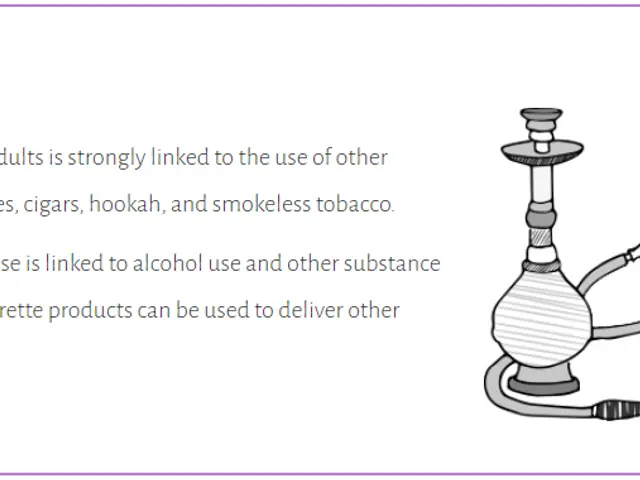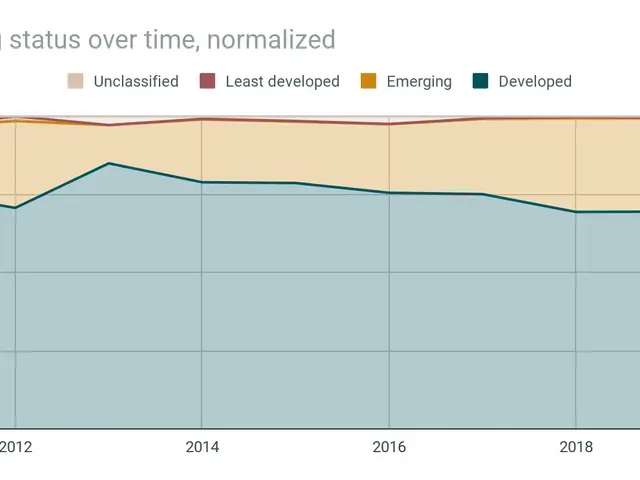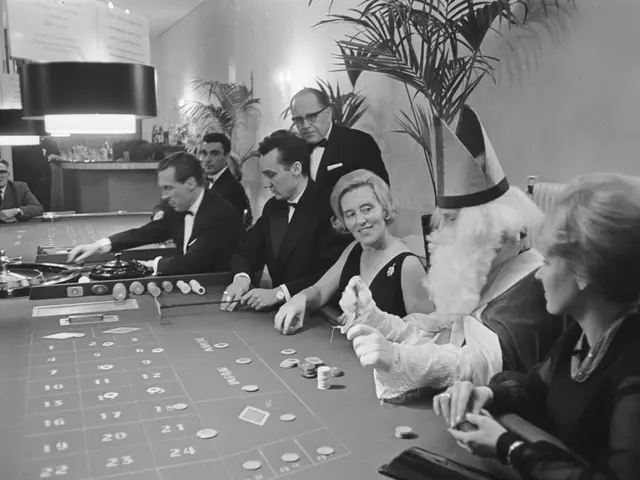"Persisting patterns from history will persistently influence future developments"
In the ever-evolving world of investing, Henrik Muhle, co-founder of Gané and former analyst at Acatis Investment, offers a clear perspective on the future of investment strategies.
Muhle, a seasoned investor, strongly advocates for the Buy-and-Hold approach in the face of an enduring low-interest environment. He believes that stocks are a crucial component of any investment portfolio, making them a necessary choice for long-term investors.
His current investment strategy focuses on investing in companies that boast sustainable business models, solid balance sheets, and high profit margins. This approach emphasizes quality and resilience in company fundamentals, positioning these companies as winners in the current market environment.
One such company that Muhle has a significant weighting in is L'Occitane, a luxury brand that has seen a substantial increase over the past 12 months. In fact, over the past five years, LVMH's stock, another luxury goods company, has more than doubled.
L'Occitane's success story is marked by improvements in key performance indicators. The company's EBIT margin was increased from 11 to 14 percent, and the online share of total sales was raised from 69 to 37 percent.
However, the luxury goods sector is not immune to market fluctuations. Despite strong business figures, LVMH temporarily fell by 13 percent, a testament to the normal short-term corrections and fluctuations that are part and parcel of the stock market.
Muhle believes that digitalization, better and longer life, and more efficient use of natural resources are the big trends that will continue in the future. He emphasizes that companies offering good solutions and building an indispensable market position belong to the future, a philosophy that is reflected in his investment choices.
Online retail plays a selective role in the luxury goods industry, but the physical experience remains very important. Muhle acknowledges this, highlighting that while online sales are growing, the brick-and-mortar stores continue to be a vital part of the luxury goods industry.
Muhle does not find it necessary that the current situation is a trend towards a larger market correction. Instead, he believes that the luxury goods sector is likely to continue growing stronger than the overall economy in the long term, albeit with significant fluctuations.
In conclusion, Henrik Muhle's investment strategy is rooted in a forward-thinking approach that emphasizes quality, resilience, and the ability of companies to adapt to and thrive in the trends of the future. His focus on winning companies that should benefit from long-term trends such as digitalization or a longer and better life positions him as a strategic investor in the luxury goods sector.
Read also:
- Peptide YY (PYY): Exploring its Role in Appetite Suppression, Intestinal Health, and Cognitive Links
- Toddler Health: Rotavirus Signs, Origins, and Potential Complications
- Digestive issues and heart discomfort: Root causes and associated health conditions
- House Infernos: Deadly Hazards Surpassing the Flames








